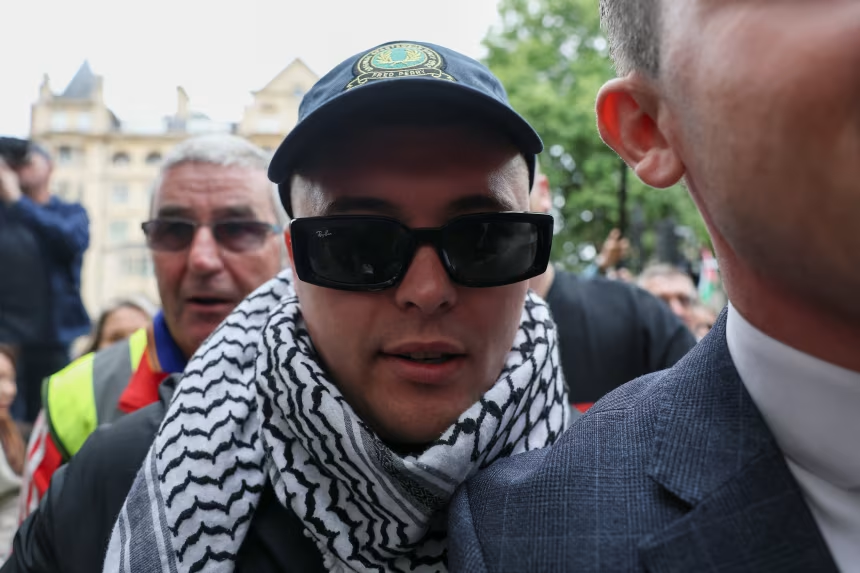An Irish rapper known as Mo Chara has found himself at the center of a high-profile legal battle, accused of waving a Hezbollah flag during a London concert last year. The charge, brought under Britain’s counter-terrorism laws, alleges that the rapper’s actions could be interpreted as support for a banned organization—an allegation that has sparked widespread debate.
The case began when authorities reviewed video footage of the Dublin-based artist waving the flag at a show in late 2024. The rapper, known for politically charged performances supporting Irish republicanism and Palestinian rights, was taken to court in London this week. He appeared before a magistrate just months after a previous court appearance, and now awaits the outcome of legal arguments centered on whether the prosecution was filed within the six-month timeframe mandated by law.
Outside the courtroom, the scene was electric—fans rallied in solidarity, waving Irish and Palestinian flags, and chanting slogans of support. Supporters framed the case as one rooted in political suppression, not criminal wrongdoing. The rapper’s defense team argues that the charges were filed just after the legal deadline and should be dismissed on procedural grounds.
For the broader cultural moment, the case underscores growing tensions around free expression, protest, and the boundary between art and law. The rapper and his band have long leaned into provocative visuals and statements—from music festival stages to social media—but this legal escalation puts that approach under a new and more serious spotlight.
As the case unfolds, many are watching to see whether legal rules will trump political pressure—or if cultural confrontation has entered a new phase under the glare of the justice system.


